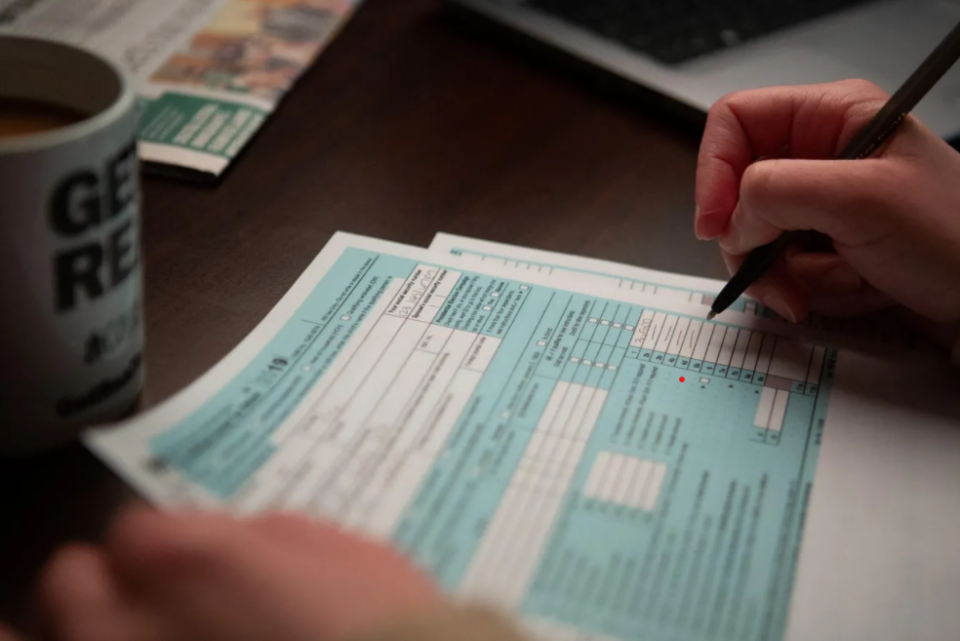Kansas Day, Jan. 29, is also the first day you can file your taxes. Here's what to know
Kansas Day also happens to be the first day this year that federal income taxes may be filed.
The Internal Revenue Service will begin accepting and processing returns Jan. 29, it said recently on its website.
Filing begins later this year than in the previous two years, as it started Jan. 23 in 2023 and Jan. 24 in 2022.
Here are some answers to frequently asked questions about filing your income taxes this year.

Can I get my ducks in a row before Jan. 29?
Taxpayers who wish to get an early start may take steps toward doing that now, the IRS says.
Most online services allow taxpayers filing electronically to input all of their information before Jan. 29, then have the service submit that to the IRS that day.
The same is typically true when using tax preparers. They can complete the return ahead of time and send the prepared ones to the IRS once it opens Jan. 29.
Are you eligible for IRS Free File?
Anyone may file taxes free of charge using the IRS' Free File Fillable Forms accessible on the IRS website. All of the necessary forms on that site must be filled out manually by the taxpayer.
Free guided tax preparation is available to taxpayers whose adjusted gross income is $79,000 or less. The IRS works with eight trusted partners, or online services, to do that. Each partner has different eligibility requirements based on average gross income. Some partners also offer free filings on state tax returns.
More information about the trusted partners and the rules each has in place can be found on the IRS website.
Taxpayers must access one of the eight partners through the IRS website. Taxpayers won't receive the free benefits if they visit the partner website directly.
Are you eligible for TurboTax Free Edition?
TurboTax, an online service not covered by IRS Free File, offers its "Turbe Tax Free Edition" to taxpayers filing a Form 1040 return with limited credits.
The TurboTax website says the service is available to taxpayers with an IRS standard deduction, Earned Income Tax Credit, Child Tax Credit or student loan interest deduction, and W-2 income, interest or dividends that don't require a Schedule B filing. About 37% of taxpayers will be eligible, the site says.
The program is not available to taxpayers with itemized deductions claimed on a Schedule A filing, unemployment income reported in a 1099-G, business income, stock sales, rental property incomes, and credits, deductions and income reported on other schedules or forms.
How soon will you receive a tax refund?
If you file a return electronically and everything goes smoothly, expect a refund (if you're entitled to one) in less than 21 calendar days. If mailing a physical return in the mail, getting a refund may take four weeks or more.
If claiming the Earned Income Tax Credit or Additional Child Tax Credit, a refund may take a bit longer than that to be processed and delivered. According to the IRS website, EITC and ACTC refunds cannot be issues before mid-February.
How can you check the status of a tax refund?
To check on the status of a refund, use the IRS Where's My Refund tool online or call the refund hotline at 800-829-1954. Statuses can be checked 24 hours after an electronic filing and four weeks after a physical mailed filing.
When is the last day to file taxes?
The final day to file tax returns is Monday, April 15.
Contact Tim Hrenchir at threnchir@gannett.com or 785-213-5934.
This article originally appeared on Topeka Capital-Journal: Kansas Day is the first day you can file federal income taxes

